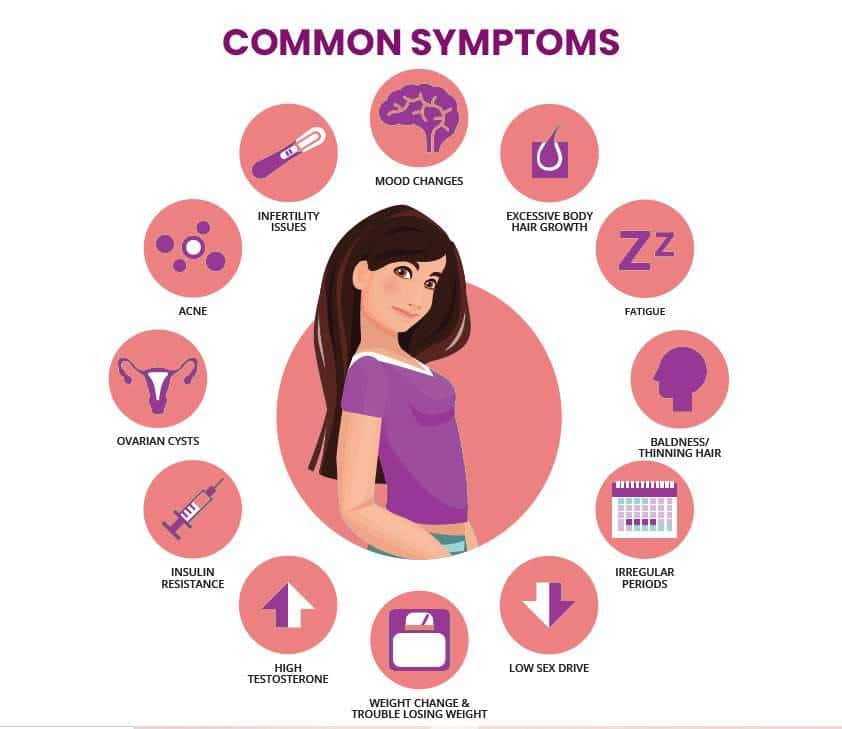Irregular Periods Part 2: What are The Symptoms?
In the previous post, we discussed the types and causes of irregular menstruation. Having an occasional irregular or abnormal period is usually not a cause for concern. However, persistent or long-term menstrual irregularity can signal health problems and adversely affect a woman’s lifestyle. In this post we will investigate the symptoms and effects.
1. Amenorrhoea – This is the medical term for absence of menstrual periods for 6 months.
Symptoms:
Depending on the cause of amenorrhoea, you may experience other symptoms along with the absence of a period. Some of these include:
– Headache.
– Nausea.
– Extra facial hair.
– Vision changes.
– Hair loss.
– Changes in breast size.
– Milky fluid, or discharge, from breasts.
Effects:
The absence of a menstrual period may result in a variety of negative effects on a woman’s life. These include:
– Reduced fertility and chances of falling pregnant.
– Increased risk of high blood pressure.
– Increased risk of early onset osteoporosis.
– Low self-esteem associated with physical effects such as extra facial hair.
2. Oligomenorrhoea- This type of abnormal menstruation involves infrequent menstrual bleeding.
Symptoms:
The most common signs of oligomenorrhoea are missed and delayed periods. However, you may experience other symptoms depending on the cause. Symptoms include:
– Acne.
– Headaches.
– Hot flashes.
– Abdominal pain.
– Vaginal discharge.
– Impaired vision.
– Excess hair growth on your face and body.
Effects:
When left untreated, oligomenorrhoea may result in negative effects such as:
– Reduced fertility
– Osteoporosis
– Low self-esteem associated with physical effects such as acne.
3. Heavy Menstrual Bleeding- This type of irregularity is categorized by heavy bleeding that lasts more than 7 days.
Symptoms:
Heavy menstrual bleeding may be categorized by other accompanying symptoms such as:
– Passing blood clots larger than a quarter.
– Soaking through one or more sanitary pads/tampons every hour for several hours in a row.
– Getting up at night to change sanitary pads or tampons.
– Feeling tired, fatigued or short of breath as the result of blood loss.
Effects:
When left untreated, heavy menstrual bleeding can result in additional health issues and effects that disrupt your life. These may include:
– Limiting daily activities due to heavy menstrual flow.
– Iron-deficiency anaemia due to blood loss.
– Increased risk of heart problems.
– Financial strain due to increased purchase of period products.
4. Dysmenorrhoea- This refers to intense pain associated with menstruation.
Symptoms:
Dysmenorrhoea may be accompanied by symptoms such as:
– Cramping in the lower abdomen.
– Lower back pain.
– Weakness or fatigue.
– Vomiting or nausea.
– Diarrhoea.
– Headaches.
Effects:
Untreated dysmenorrhoea may negatively affect a woman’s quality of life in ways such as:
– Absences from work/school due to pain.
– Health problems such as irritable bowel syndrome and fibromyalgia.
Contact your gynaecologist if you are experiencing persistent symptoms of these menstrual irregularities.

Image Source: https://www.lotuswomencare.com/pcos-irregular-periods
Contact Serviam to make an appointment to visit our clinic in San Fernando Trinidad for services from our team specializing in: OBGYN, Paediatrics, General Surgery, Urology, Dietetics, Medico-Legal Services and more.
